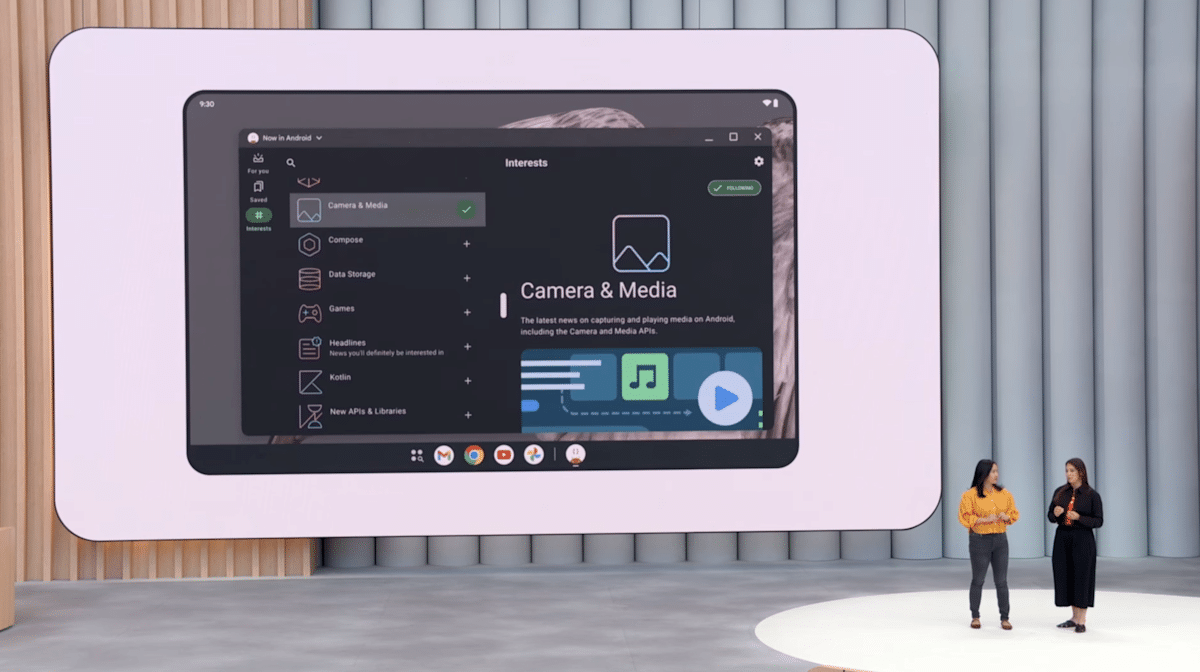Google Announces Desktop Experience Feature in Android 16

Google has unveiled plans to enhance the desktop experience for Android devices, a move announced during the I/O 2025 developer conference. The tech giant is collaborating with Samsung to build on the existing Samsung DeX platform, aiming to improve windowing capabilities across a variety of devices. This initiative seeks to provide users with a more desktop-like experience when their devices are connected to external displays, expanding the functionality of Android beyond traditional mobile use.
Enhancements in Android 16
At the heart of this initiative is Android 16, which Google is developing in partnership with Samsung. During the keynote at the I/O 2025 event, the company highlighted its focus on enhancing desktop windowing capabilities to facilitate more powerful productivity workflows. The enhancements are designed to deliver a true desktop-like experience when devices are connected to external screens, potentially through USB connections.
Google’s approach includes leveraging Adaptive Android development, which aims to ensure that applications perform effectively across a diverse range of devices. This strategy emphasizes code reuse and scalability, allowing apps to adapt seamlessly to different screen sizes with minimal modifications. The improvements will benefit over 500 million active devices, including foldables, tablets, Chromebooks, and in-car infotainment systems, thereby broadening the scope of Android’s usability.
New Features for Desktop Windowing
The new desktop experience is expected to allow users to maximize the potential of larger screens when connecting their phones, particularly Pixel devices, to external displays like laptops via USB Type-C connections. Reports indicate that a feature labeled “enable desktop windowing on secondary displays” was found in the Android 16 Beta 4. This feature introduces a taskbar, status bar, and a three-button navigation menu when a device is connected to an external display.
The taskbar will include pinned applications such as Phone, Messages, Camera, and Google Chrome, along with an app drawer. Additionally, it is anticipated to showcase recent apps in a dedicated mode, which could significantly enhance multitasking capabilities for users. These features aim to create a more integrated and efficient user experience, aligning Android devices more closely with traditional desktop environments.
Future Implications for Android Users
The collaboration between Google and Samsung marks a significant step in the evolution of Android as a versatile operating system. By enhancing desktop capabilities, the companies aim to redefine how users interact with their devices, particularly in professional and productivity contexts. The improvements in Android 16 are expected to cater to a growing demand for more robust functionality in mobile devices, especially as remote work and digital collaboration continue to rise.
As this new desktop experience rolls out, it will likely encourage developers to create applications that take full advantage of the enhanced windowing features. This could lead to a richer ecosystem of apps designed specifically for larger screens, further bridging the gap between mobile and desktop computing. With these advancements, Google and Samsung are poised to transform the way users engage with their Android devices, making them more powerful tools for productivity and creativity.
Observer Voice is the one stop site for National, International news, Sports, Editor’s Choice, Art/culture contents, Quotes and much more. We also cover historical contents. Historical contents includes World History, Indian History, and what happened today. The website also covers Entertainment across the India and World.

